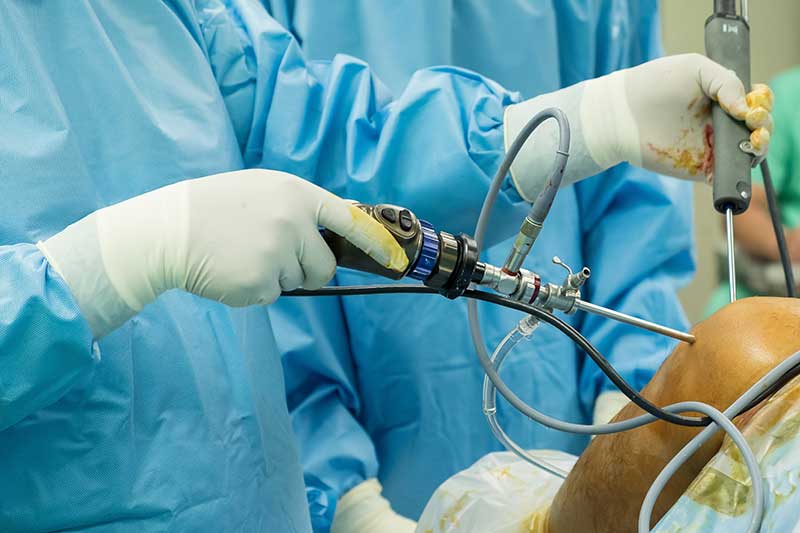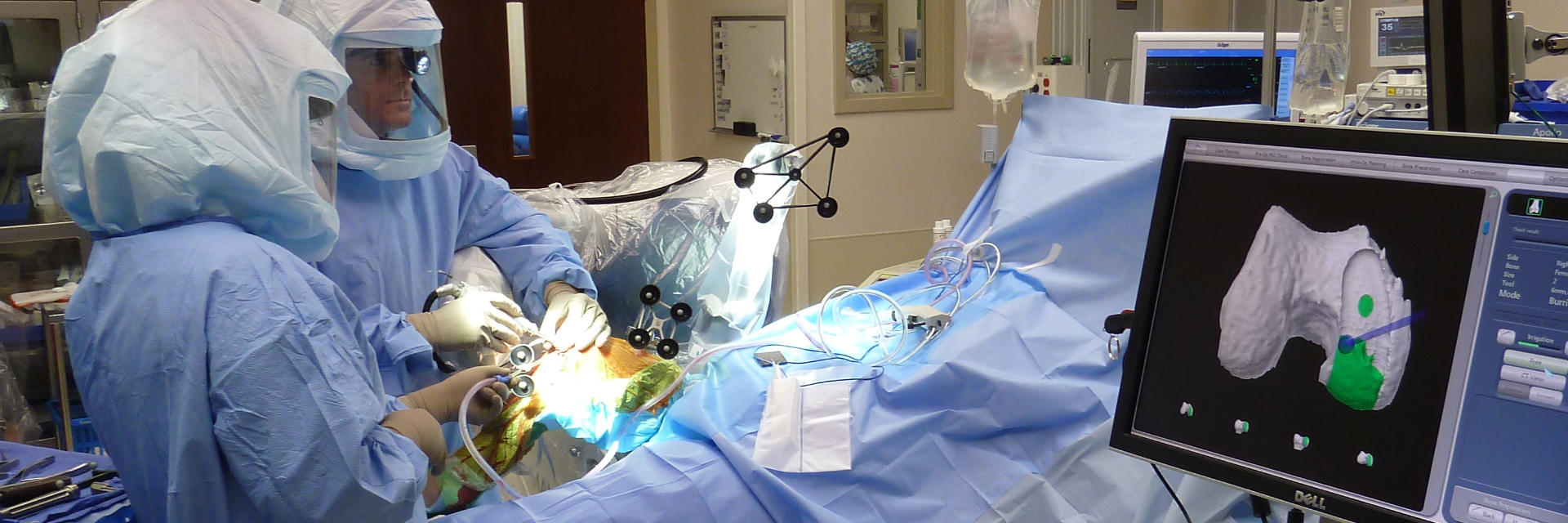During the recent times, robotic knee surgery has emerged as a transformative solution to orthopaedic problems. It has the potential to improve surgical precision, enhance patient outcomes and aid in faster recovery. This advanced technology has drawn significant attention.
But one crucial factor that arises whilst adopting any new surgical technique is its efficacy and safety. Dr. Kunal, the best orthopedic doctor in Mumbai explains the efficacy and safety of robotic knee surgery with considerable examination of its benefits, challenges and ongoing research. So, let’s delve into these factors which are listed below:
1.Benefits:
- Improved Surgical Precision:
The primary advantage of robotic knee surgery is its enhanced surgical precision. The technology makes use of robotic system with advanced imaging techniques and computer-assistance. It helps to create a three-dimensional model of the patient’s knee which allows surgeons procedural planning with exceptional accuracy. This factor has made optimal placement of implants possible which aids in improved alignment and stability. The overall knee joint function subsequently improves.
- Reduction in complications:
The recent studies prove that robotic knee surgery results in lesser complications as compared to the traditional techniques. The robot-assisted system reduces chances of errors during the procedure like improper implant alignment or excessive bone removal.
- Faster recovery:
Robotic knee surgery is a minimally invasive technique which leads to smaller incisions, lesser blood loss and reduced trauma to surrounding tissues which results in faster recovery and lesser postoperative pain.
- Personalized Approach
The technique allows planning personalized approach tailored to each patient’s unique anatomy. The precise mapping of the patient’s knee joint enables surgeons to select the optimal implant size and alignment specific to the individual’s needs. It contributes to better outcomes and patient satisfaction.
2. Research and Clinical Data:
Many clinical studies have been conducted to assess the safety and efficiency of robotic knee surgery. They have always demonstrated positive results which include improved implant positioning, lesser complications, shorter hospitalizations, improved patient outcomes and long-term results.
3.Challenges:
Robotic knee surgery has some challenges as well which creates hindrance in the optimization of this technique. The initial cost of implementation of robotic technology is a challenge in itself which may limit access to this surgical option. Training of surgeons in utilization of the robotic system is also important to secure optimal results. There is need for continuous research, training programs and sharing of best practices among surgeons to harness the complete potential of this technique. This also poses a challenge which needs to be addressed.
We can conclude by stating that with continued advancements, robotic knee surgery has the potential to become the standard treatment procedure which can transform the lives of individuals suffering from knee conditions and joint degeneration.




